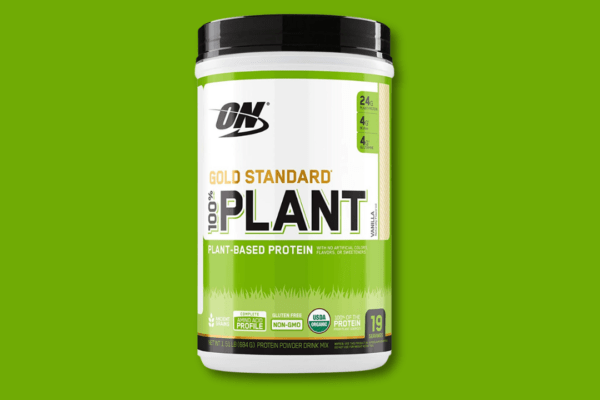Acne breakout could have several reasons and not just one. The primary reason one could think of in an instant is the hormones changing in our body, resulting in so many other changes in our body. One could wonder why there is a sudden breakout of acne on their skin and find themselves clueless then the reason could also be a reaction to a disease or specific medication.
The causes are endless if we are to sit and count them, and we surely cannot forget about the environment and outside factors responsible for making our skin or face look the way it does currently. The outside dirt, pollution clog the pores, causing the dead skin cells and oil to get trapped, hence acne breakout.
But people and experts have been testing a theory on whether dairy products consumption could be responsible for causing acne on our skin? Things don’t seem very clear right now, but there have been numerous hypotheses built based on this relationship theory of acne and dairy products.
So the question arises here: Will cutting out dairy food items from your daily intake help in these frequent acne breakouts? The research right now says that a specific dairy diet could lead to more acne breakout chances, and this would also vary from one person’s skin to the other.
An analysis was done in 2018 to examine children, adolescents, and young adults’ dairy intake. There was some relationship between acne and different dairy products measured and reviewed by the research scholars.
The different relationships included subgroups of dairy products such as full fat, low fat, skim, and whole milk, the amount of dairy product consumed at various intervals, and types of dairy products such as milk, yogurt, cheese, etc.
All these factors affect acne breakout. This relationship research concluded that there were high chances of people from 7 to 30 years to have an acne breakout. People who were more indulged in low fat or skim milk had more chances of acne breakout.
Moreover, other evidence indicated different conclusions to different theories. One of which involved that the people who consumed more than one glass of milk in a day were prone to more acne breakouts than those who drank 2-3 glasses of milk in total an entire week.
But not all the theories are correct since there was no concrete evidence to conclude that dairy products such as yogurt or cheese cause acne’s breakout.
Theories that formed Hypotheses for acne and Dairy Relationship?
It is believed that dairy cows are treated or injected with artificial hormones, prone to affect the milk supply. The synthetic hormone is known as recombinant bovine growth hormone (rBGH), and these hormones are injected to increase the milk supply. Hence the residue is left in the milk supply.
These artificial hormone-treated cows produce milk that contains IGF-1, which is present in higher levels. Experts believed after their observation that IGF-1 triggers acne breakout in people by consuming the artificial-hormone produced milk. But some other researchers believe that there is no concrete evidence to say that IGF-1 high levels cause health issues in people.
Other theories related to this relationship say that the ever-present growth hormones could also aggravate acne breakout in a person. If the dairy products are processed and mixed with sugar converting them into processed foods makes it even more dangerous.
Milk proteins could also become an evident factor in acne breakouts where milk contains whey, which increases the insulin level in the blood. The other protein known as Casein increases IGF-1, where both of these proteins lead to acne breakout in people.
All these factors have been understood as part of the research to say that dairy products and acne do have a connection, but it’s too soon to conclude anything confidently. A more in-depth observation requires finishing and proving this alternate theory.
The understood effects of dairy on Skin and Treating Acne Breakouts.
It is not just a specific protein in the milk, but the presence of lactose could cause harm to a person. It is believed that a person tends to be more allergic to milk, specifically after the weaning period. However, not all the world’s population is lactose intolerant, but just 65-65 percent of the population is affected by the condition.
A person could be trying to eliminate dairy products from their daily food intake and see what results in it to confirm whether there is any relationship between acne and dairy food. Meanwhile, what you can do to lessen these breakout is essential to know some of those steps you can try are:
- You can look for specific chemical compounds in your cream or lotion to reduce the acne from your skin, such as salicylic acid.
- You need to keep your skin as dry as possible (not excessively dry) and avoid looking for any oily-creams or cleansers. Try to use more oil-free products, especially for your face, while trying your acne to fade gradually.
- Try not touching the acne-prone area or prick it repeatedly because it might lead to increased infection, and try not to itch that place.
- You need to keep washing your face regularly for at least 3-4 times a day with lukewarm water during winters so that all the excess oil is washed away from the front.
- You can apply some essential tropical elements such as coconut oil, which contains anti-inflammatory properties that might prove helpful.
Make a note in your mind that other possible factors for your acne breakout are not necessarily only dairy products. Moreover, there hasn’t been any concrete proof to say for sure that they both have a stable relationship and confirm that consuming dairy products would, in the end, cause an acne breakout.
A person might have those due to hormonal changes, or just at the beginning of the monthly cycle, or during pregnancy. The causes are many to identify, and if it seems essential, one must visit a dermatologist for proper review and advice on the acne breakout reason.




